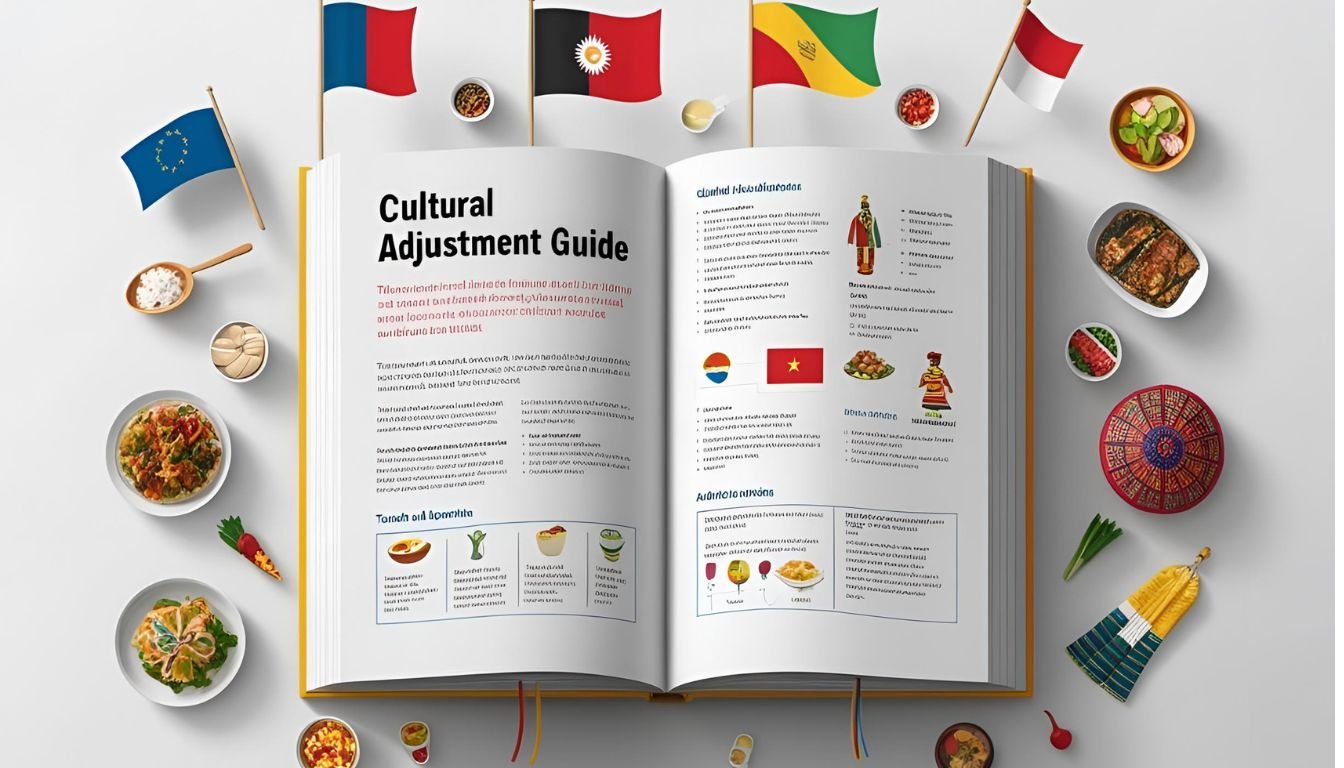Have you ever wondered what it takes to thrive in a new country while pursuing your dreams? With over 1 million students choosing to study abroad in 2023, the world is becoming a global classroom. For many, this journey is not just about academics but also about embracing new experiences and adapting to a different way of life.
One of the key destinations gaining attention is a neighboring country known for its warm hospitality and shared traditions. The similarities in food, language, and customs make the transition smoother. However, challenges like language barriers and social integration still require attention.
Balancing academic rigor with social connections is crucial. Whether it’s preparing for exams like NEET-UG or finding familiar food options, small steps can make a big difference. With the right mindset and support, this journey can be both rewarding and transformative.
Curious to learn how to make the most of this opportunity? Let’s explore practical tips and insights to help you succeed. For more guidance, check out our comprehensive guide on studying abroad.
Understanding Cultural Adjustment for Indian Students in Bangladesh
Moving to a new country for studies can feel overwhelming at first. It’s natural to experience a mix of excitement and uncertainty. For many, this phase involves adapting to unfamiliar social norms and communication styles. The good news? These feelings are temporary and part of the process.
Why Cultural Shock is Normal (and Temporary)
Feeling disoriented during the first few months is common. Studies show that adjusting to a new environment typically takes 3 to 12 months. This period allows individuals to gradually adapt to differences in daily life, from communication habits to social interactions.
For example, direct eye contact norms vary across cultures. In some places, it’s seen as a sign of confidence, while in others, it may be considered disrespectful. Understanding these nuances can help ease initial discomfort.
Key Differences in Social Norms
Social etiquette in Bangladesh often emphasizes hierarchical interactions. Respect for elders and authority figures is deeply ingrained. This contrasts with more casual interactions in other cultures. Recognizing these differences can foster smoother relationships with locals.
Festivals, cuisine, and family dynamics also vary. While some traditions may feel familiar, others might be entirely new. Embracing these differences can enrich your experience and help you connect with the community.
To adapt gradually, start by observing and learning from those around you. Engage in local activities and ask questions to better understand the culture. Small steps can make a big difference in feeling at home.
Navigating Academic Life in Bangladesh
Starting a new academic journey abroad brings both challenges and opportunities. Understanding the education system and preparing the necessary paperwork can make the transition smoother. Let’s explore what you need to know to succeed academically.
How the Education System Compares
In many countries, the focus is on lecture-based learning. However, the system here emphasizes practical training. This hands-on approach helps students gain real-world experience, which is particularly beneficial for medical studies.
For example, medical programs often include clinical rotations early in the curriculum. This contrasts with systems where such training is reserved for later years. Adapting to this style can enhance your skills and confidence.
Essential Paperwork and Guidelines
Proper documentation is crucial for a smooth academic journey. The Bangladesh Medical and Dental Council (BMDC) plays a key role in accrediting medical colleges. Ensure your chosen institution is recognized by BMDC to avoid future complications.
Here’s what you’ll need:
- Equivalence certificates to verify academic qualifications.
- NEET-UG scores, which are mandatory for medical students.
To verify a college’s legitimacy, visit the BMDC website and follow their step-by-step process. Avoid unauthorized consultants who may provide misleading information.
By understanding these aspects, you can focus on your studies and make the most of your academic experience. Preparation and awareness are your best tools for success.
Building a Support System and Staying Connected
Creating a strong support system is essential for thriving in a new environment. Whether it’s connecting with locals or staying in touch with fellow students, building meaningful relationships can make your journey smoother and more enjoyable.
Registering with the Indian High Commission in Dhaka
One of the first steps to ensure your safety and support is registering with the Indian High Commission. This process is mandatory and provides access to consular services. Visit hcidhaka.gov.in/Students_reg to complete your registration. For emergencies, use the 24/7 Helpline on WhatsApp: +8801937400591.
Balancing Friendships with Locals and Fellow Students
Building friendships with both locals and fellow students can enrich your experience. Language-exchange programs are a great way to connect with locals while improving your language skills. At the same time, staying close to fellow students can provide a sense of familiarity and comfort.
Extracurriculars to Ease Homesickness
Participating in extracurricular activities can help ease homesickness. Join cultural clubs, university sports teams, or volunteer groups to stay engaged. Cooking sessions featuring familiar dishes can also bring a taste of home. These activities not only keep you busy but also help you build lasting connections.
For more tips on managing homesickness, check out our comprehensive guide. Remember, a strong support system and active participation in your new community can make all the difference.
Conclusion: Thriving in Your New Academic Home
Adapting to a new academic environment is a journey filled with growth and opportunities. While initial challenges may feel overwhelming, they are temporary and part of the process. Leveraging support systems, such as the High Commission and peer networks, can make this transition smoother.
Building cross-cultural friendships not only enriches your experience but also opens doors to long-term benefits. Prioritizing academic goals while staying connected with your community ensures a balanced and fulfilling journey. Free university counseling services are also available to guide you every step of the way.
Embrace this opportunity to grow, learn, and thrive. For personalized assistance, explore our University Selection services to make the most of your academic adventure.





